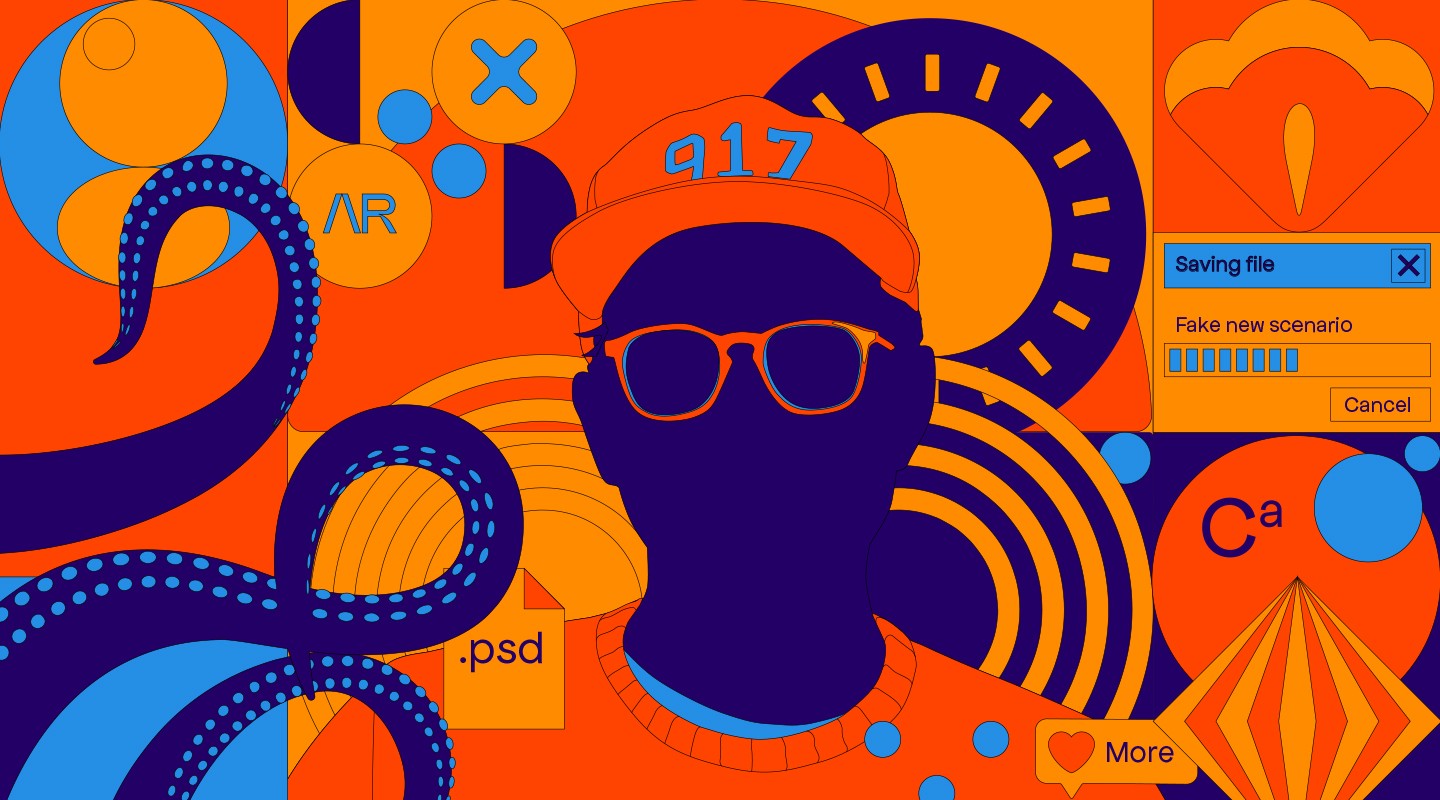How Compressed Disruption Is Forcing Us to Reevaluate the Future of Content Creation.
Since the birth of the internet, we've applied physical analogies to the web and designed online experiences that reflect our physical world. But now, with quarantine accelerating the advancement of technology, the lines between real and simulated are more blurred than ever.
At the beginning of quarantine, Ivan Perez-Armendariz, our Head of Digital Experience, made a comment that has stuck with me: “Technology will not pivot and take a new course, but rather, it will accelerate toward its predefined, previously unknown goal, faster.” And by and large, he was spot on. The idea that we are experiencing compressed disruption is evident in everything from telemedicine, robot deliveries, contactless payment, and more! Technology is progressing faster than ever to help us adapt. And these innovations aren’t showing signs of slowing down. So, when it comes to entertainment, content, and advertising, we’ve already seen brands such as Hulu, Spotify, and PetSmart leverage tech such as deepfakes, holograms, and AR, but will the rise of these new technologies become the new normal for brands and creators alike? I think so.
I stumbled upon a video on Instagram (created by @ghost3dee) a couple months ago of an octopus walking across the seashore. The octopus had this astounding movement that caught my attention. What I later discovered is that the video was entirely fake! It is no shock to anyone that there is a lot of fakeness floating around on the internet, but for some reason this CGI octopus caught me by surprise. It left me with an existential thought... with many people doing it for the ’gram, why would anyone go anywhere if they can simulate being there for others?
And so, I asked myself, “If I was stuck at home and desperate to share on social media, could I create content compelling enough to share—even if it’s fake?” I tried to dig into the darkest, most insecure side of myself. And the answer for me was yes.
For influencers who are currently on the hook for delivering content and demonstrating their vision of “what’s worth caring about,” taking selfies in VR seems a tad cringe-worthy now but could likely be the kind of content we expect to see rise in the coming months. Take a look at Lil Miquela, an Instagram model and personality created entirely from CGI. Despite there being nothing real about her, she has almost three million followers, she secured brand partnerships with Calvin Klein and Prada, and, clearly, people are genuinely into her content. It’s no secret influencers are taking note, with some even posting fake photos of themselves in places and situations that their fans could only dream of.
For now, many of us still cringe when influencers are caught faking their realities, like this couple busted for pretending they were jet-setting when they were actually just on a jet set, or this couple’s faux engagement that went viral. But ask yourself, if you had gone to *that* metal obelisk in the desert, would you have not posted a photo to social? Now, imagine it’s really hard to get to and you don’t have time, but with a little tech and photoshop chops you can create a photo that no one can tell is fake. For a social influencer with an army of anonymous lovers, is it taboo or just good business? Why spend the money, time, and for now the potential health risk to get quick content, when you could just create it at home? And would your followers actually care if you were upfront about it—just like tagging #AD on sponsored content but instead tagging #AR?
And for brands, if influence and cultural relevance is the North Star, and there’s significant momentum toward simulated content being influential and culturally relevant, then a future where we have an infinite pool of talent to cast in campaigns isn’t so far off. A reality where we can simply create at the pace of our imagination and invest in technologists and creators instead of personalities and places.
Quarantine has come at a time in culture where showing off is at its peak; people like to follow those with lifestyles that feel out of reach. And parallel to that, technology, especially with the rollout of 5G, has become powerful and accessible enough to simulate reality relatively easily. And so, if Lil Miquela’s followers don’t seem to mind a simulated reality, maybe others wouldn’t mind either. At the risk of sounding angsty and existential, I’m left wondering if “real” in the physical world is no longer relevant in the future we’re barreling toward.



